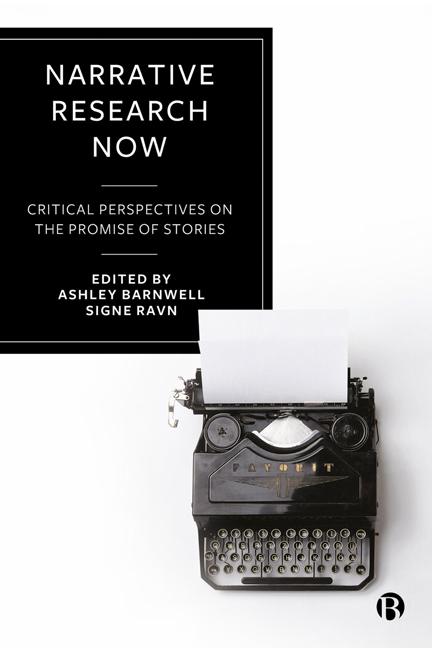Foreword
Published online by Cambridge University Press: 28 March 2024
Summary
This book showcases narrative research now, embracing the challenge to situate the most enduring practice of storytelling in relation to new times, new technologies and the new kinds of publics that they enable. Stories are always situated within histories that shape what can be told and heard, making stories part of practices of oppression and resistance. So critical narrative research ‘now’ must engage with digital methods and the ease of replication and linkage that these bring. Narratives now have to be contextualised in relation to new doubts about veracity and the institutional and virtual spaces through which emotion can be moved, intensified and instrumentalised. Narratives now must be understood as having escaped the confines of talk, inhabiting architectures, songs, ribbons, nudges and likes. Representing the stories of others involves ‘joining in’ with the telling, including claiming, deflecting, returning and amplifying narrative value.
We also have our own biographical ‘nows’ from which we experience narrative. These days I am becoming intimately connected with the eulogy as a narrative form – the story of self that is told about us by those who have loved and lost us: connecting fragments and points of view from friends, family, colleagues and material traces. At other times in my life I have been sensitised to other kinds of storytelling: the critical moments that power coming-of-age narratives; the connective stories of familiarity and inheritance and that talk into being a new generation; and encounters with forgotten and unstoried material rediscovered in archives that surprise, enchant and even haunt us. And of course, those insurgent sexual stories that were our preoccupation in the late 1980s and 1990s, new ways of talking that made public problems out of private trouble and enacted sex and gender in radically new ways.
And so, I would like to honour the death in 2022 of Ken Plummer, a prince of narrative methods, who connected a sociology of interaction with humanistic understandings of text and documentation. His worked helped me and many others understand how stories are always conservative and conserving: it takes chains and webs of people to imagine, articulate and hear stories.
- Type
- Chapter
- Information
- Narrative Research NowCritical Perspectives on the Promise of Stories, pp. x - xiiPublisher: Bristol University PressPrint publication year: 2023



